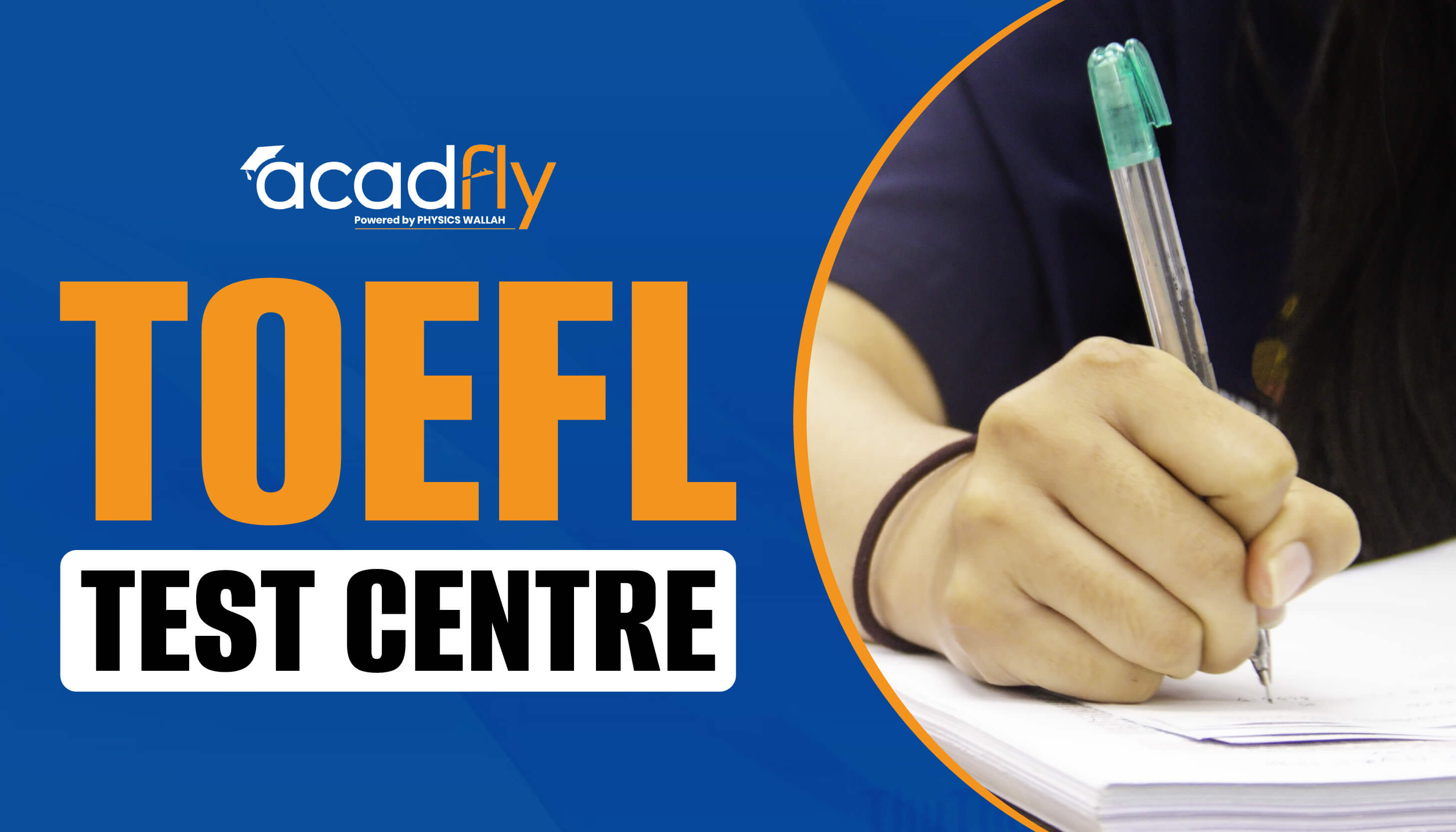
English proficiency tests like IELTS and TOEFL are crucial for admission to German universities, especially for international students. These tests assess a student's ability to understand and communicate in English, ensuring they can succeed in academic settings. Germany’s universities often have specific score requirements based on the program and university. Understanding the English test requirements for study in Germany can help you prepare accordingly. This guide will outline the key points for both IELTS and TOEFL exams for prospective students.
IELTS Requirements for Germany and What You Need to Know
When planning to study in Germany, one of the essential requirements for international students is demonstrating proficiency in English. The IELTS exam is commonly accepted by German universities, especially for programs taught in English. Here’s what you need to know about IELTS requirements for Germany.
Minimum IELTS Score for Admission
Most universities in Germany require a minimum IELTS score of 6.0 to 6.5, depending on the course and institution. Some highly competitive programs may ask for a higher score, such as 7.0 or above. Always check with the specific university for their exact requirements.
Validity of IELTS Score
IELTS scores are generally valid for two years. Ensure that your IELTS score is within the valid period at the time of your application. If your score has expired, you may need to retake the test.
Course-Specific Requirements
Different courses might have varying IELTS score requirements. For example, courses in the humanities may require a lower score compared to those in the sciences or business. Be sure to review the requirements for your specific course before applying.
Proof of English Proficiency
If you have completed your previous education in English, you might be able to waive the IELTS requirement. Many German universities accept other forms of proof, such as a degree from an English-medium institution, so check with the university for alternatives.
Preparing for the IELTS Exam
To meet the IELTS requirements, preparation is key. Practice listening, reading, writing, and speaking skills through sample tests or preparatory courses. Adequate preparation will ensure you meet the score needed for admission to your chosen program.
TOEFL Scores for German Universities
When considering studying in Germany, demonstrating proficiency in English through standardized tests like TOEFL is essential for admission. Many universities offer programs in English, and a good TOEFL score ensures that you can effectively engage with the course material and communicate within an academic setting. It’s important to note that different universities and programs may have varying score requirements, so it’s crucial to check each university’s guidelines.
TOEFL (Test of English as a Foreign Language) is one of the most widely accepted English proficiency tests by German institutions. The score required depends on the type of university, the level of the program, and the field of study. Generally, public universities may have lower requirements compared to private or highly competitive programs. It is recommended to aim for a score that exceeds the minimum requirement to enhance your chances of admission and stand out in the selection process.
|
University Type |
Minimum TOEFL Score (iBT) |
|
Public Universities |
80-100 |
|
Technical Universities |
85-100 |
|
Private Universities |
90-100 |
|
Highly Competitive Programs |
100+ |
English Tests for Study in Germany and Their Importance
When planning to study in Germany, demonstrating your proficiency in the English language is essential, especially for programs taught in English. Various English proficiency tests are accepted by German universities to ensure students are equipped for academic success. Here are the most commonly required tests and their importance.
TOEFL: Widely Accepted English Proficiency Test
TOEFL (Test of English as a Foreign Language) is one of the most commonly accepted English tests in Germany. Universities often require a minimum score ranging from 80 to 100 for admission. A strong TOEFL score demonstrates that you can understand and engage with course content in English.
IELTS: Another Popular Option
IELTS (International English Language Testing System) is also widely recognized by German universities. Similar to TOEFL, the IELTS tests your skills in reading, writing, listening, and speaking. Most German universities require an overall band score of 6.0 to 6.5 for undergraduate programs and higher for postgraduate courses.
Cambridge English Qualifications: An Alternative for Some Institutions
Cambridge English qualifications like the C1 Advanced or C2 Proficiency are also accepted by some German universities. These tests provide an in-depth assessment of your English language skills. They are particularly useful if you have already completed advanced English language studies.
PTE Academic: A Less Common but Accepted Test
Pearson Test of English (PTE) Academic is another test accepted by German universities. This test is recognized by various institutions, especially for students applying to business and management programs. PTE focuses on your ability to communicate effectively in English in an academic environment.
Importance of English Proficiency Tests for Academic Success
English proficiency tests help ensure that students can succeed in an English-language academic environment. Achieving a strong score not only helps with university admissions but also ensures that students can understand lectures, engage in discussions, and complete assignments effectively. These tests are crucial for setting students up for success in their studies in Germany.
Language Requirements in Germany for University Admission
When applying to universities in Germany, it’s important to meet the language requirements for the program you wish to pursue. Depending on the language of instruction, you may need to demonstrate proficiency in either German or English. Here are the key language requirements for university admission in Germany.
German Language Proficiency for German-Taught Programs
If you’re planning to study a program taught in German, you’ll need to demonstrate proficiency in the German language. Universities typically require a minimum level of B2 or C1 on the Common European Framework of Reference (CEFR) scale. The TestDaF (Test of German as a Foreign Language) or DSH (German Language University Entrance Exam) are commonly accepted as proof of proficiency.
English Language Proficiency for English-Taught Programs
For programs taught in English, you must provide proof of English proficiency through tests like IELTS or TOEFL. The minimum required score varies by university, but most institutions ask for a TOEFL iBT score of 80-100 or an IELTS band score of 6.0-6.5. Some universities may also accept other qualifications like the Cambridge English exams or PTE Academic.
Proof of Previous Education in English
If you have completed prior education in English (e.g., an English-medium high school or bachelor’s degree), some German universities may waive the requirement for an English proficiency test. However, you must provide relevant documentation, such as your transcripts or certificates, to prove that your previous education was conducted in English.
Language Requirements for Specific Programs
Certain programs, especially those in the humanities or social sciences, may have higher language proficiency requirements. Additionally, some competitive programs in fields like law or medicine may ask for higher proficiency levels. Always check the specific language requirements for your desired program on the university's official website.
Importance of Meeting Language Requirements
Meeting the language requirements is essential not just for admission but also for academic success. A strong command of the language of instruction ensures you can understand lectures, participate in discussions, and complete assignments effectively. It helps you integrate into university life and succeed in your studies in Germany.
IELTS vs TOEFL for Germany and Which Test to Choose
When deciding between IELTS and TOEFL for studying in Germany, it's important to understand the differences between the two tests and how they align with university requirements. Both tests are widely accepted by German universities, but certain factors like test format, score validity, and preference of universities may influence your choice. Here's a comparison to help you decide which test might be more suitable for your needs.
|
Criteria |
IELTS |
TOEFL |
|
Test Format |
Paper-based or computer-based |
Computer-based (iBT) |
|
Test Duration |
Around 2 hours 45 minutes |
Around 3 hours |
|
Scoring System |
Band score (0-9) |
Scored out of 120 |
|
Accepted by Universities |
Widely accepted by German universities |
Widely accepted by German universities |
|
Test Focus |
Focus on academic and general English |
Focus on academic English skills |
|
Listening Section |
4 sections, varied accents |
4 sections, American accents |
|
Speaking Section |
Face-to-face interview with examiner |
Speaking through a computer microphone |
|
Reading Section |
3 reading passages with 40 questions |
3-4 reading passages with 36-56 questions |
|
Writing Section |
2 tasks: Task 1 (descriptive) and Task 2 (essay) |
2 tasks: Integrated and Independent writing |
|
Test Availability |
Available 48 times a year globally |
Available 50+ times a year globally |
Frequently Asked Questions
1. What is the minimum IELTS/TOEFL score required for admission to German universities?
2. Are IELTS and TOEFL scores accepted by all universities in Germany?
3. Can I apply to a German university if I have completed my previous education in English?
4. How long are IELTS and TOEFL scores valid for in Germany?
5. Which test should I choose, IELTS or TOEFL, for studying in Germany?









